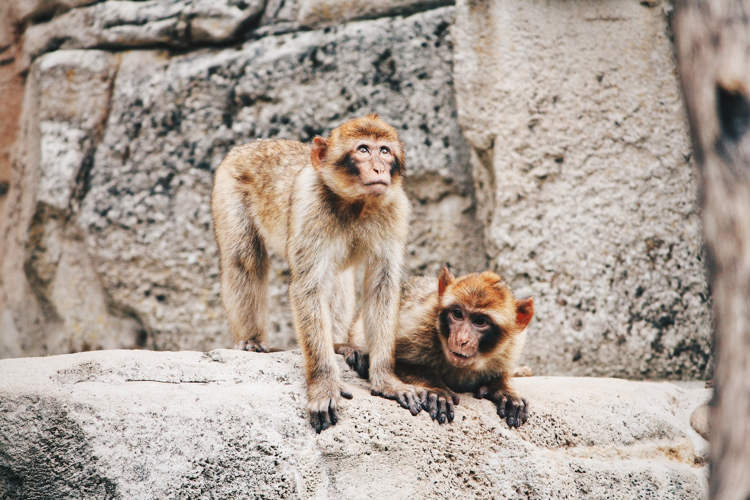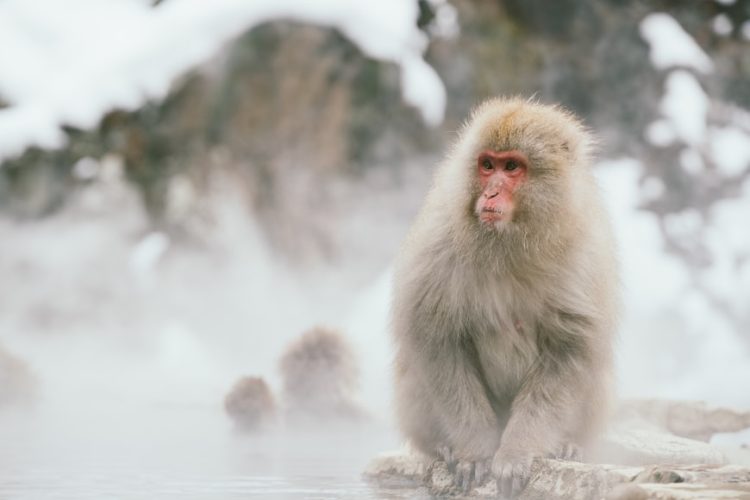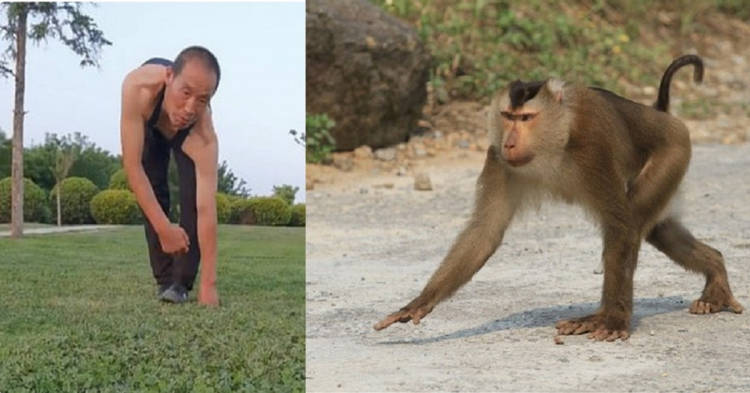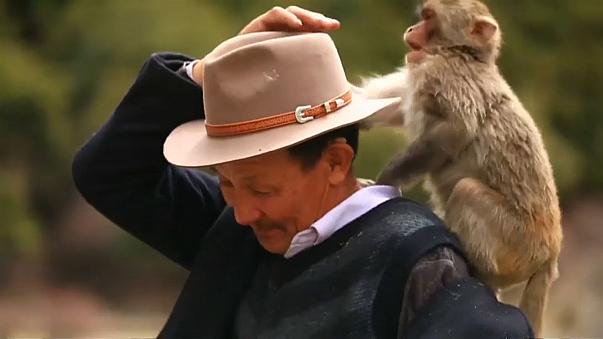The Indian Village Where Monkeys Own 32 Acres of Land

The people of Upla, a small village in India’s Maharashtra state, allegedly hold the local monkey population in such high regard that they have had land registered in the animals’ name. Farmland is very precious in India, a country where land disputes between humans are fairly common. That only makes the situation in Upla, a […]
Meet Yakei, the Macaque “Queen” Who Became the First Female Alpha in Her Pack’s History

Yakei, a 9-year-old female Japanese macaque at the Takasakiyama natural zoological garden, shocked staff by fighting her way through several strong males to become the first female alpha in the troupe’s 70-year history. The story of Yakei’s rise to power sounds like the plot of a Hollywood epic. Born into the 677-strong troupe B at […]
Man Credits Exercising Like a Monkey for 30 Years For Keeping Him in Perfect Health

A 50-year-old man from China has been exercising by moving around on all fours and climbing trees like a monkey every day for the past three decades. Chen Haigang, a fitness enthusiast from China’s Shanxi province, attracts attention whenever he exercises in public, due to the bizarre routine he has been practicing for about 30 […]
Farmer Paints His Dog Like a Tiger to Scare Away Invading Monkeys

Desperate to reclaim his farmland from a gang of invading monkeys, a farmer in Karnataka, India decided to pain his dog to look like a tiger in the hopes that it would scare the monkeys away. Srikant Gowda, a farmer from Karnataka’s Shivamogga region, recently made international news headlines after it was reported that he […]
Monkeys’ Father – The Man Who Dedicated His Life to Wild Macaques in Tibet

When 69-year-old Dobrgyal started looking after the wild macaques at at scenic spot in China’s Tibet Autonomous Region, their population numbered only 40-50 specimens. Today, 18 years later, that same place is home to over 2,800 Tibetan macaques. Dobrgyal’s relationship with the Tibetan macaques in Gongbo’gyamda County has been described as a heartwarming love story between man […]
Chinese “Monkey Village” Becomes Living Hell for Locals
A picturesque Chinese village where humans live alongside hundreds of macaques sounds like a great vacation destination, but for the local population it’s apparently a daily living hell. A little over a decade ago, authorities in Xianfeng village, in southwestern Sichuan Province came up with an ingenious plan to boost tourism and turn their quaint settlement in […]
World’s Loneliest Chimp Hugs Human Visitors after Years of Isolation on Tiny African Island
After three years of isolation on a remote island, Ponso the chimp finally received a visitor this year – Estelle Raballand, director of the Chimpanzee Conservation Center. The lonely chimp’s happiness was obvious from his ear-to ear-grin and the way he almost immediately hugged Estelle when she reached out to him. Ponso’s tragic story began thirty years […]
The Real Planet of the Apes – The Liberian Island Inhabited by Chimpanzees Formerly Used in Animal Testing

Believe it or not, a real-life Planet of the Apes does exist in an isolated area located deep in the jungles of West Africa. It’s home to dozens of retired laboratory chimpanzees who were at one point used for medical research. These chimps are practically heroes – they’ve managed to survive disease, two civil wars […]
Japanese Restaurant Employs Masked Monkey Waiters

Are you running a restaurant and can’t afford to hire waiters? Well, you could take a cue from this Japanese restaurant that hired monkeys for the job. And in an attempt to make them look more human, they even strapped masks on their faces. Not that they really fooled anybody. The restaurant in question is […]
The Snow Monkeys of Jigokudani Yaen-koen Park

Even though the name of this park might not sound very familiar you’ve probably heard about the Snow Monkeys of Japan. The Jigokudani Yaen-koen (Hell Valley Wild Monkey Park) is located in the Nagano mountains and since it was opened, in 1964, this park has been the attraction of tourists from all over the world, […]
